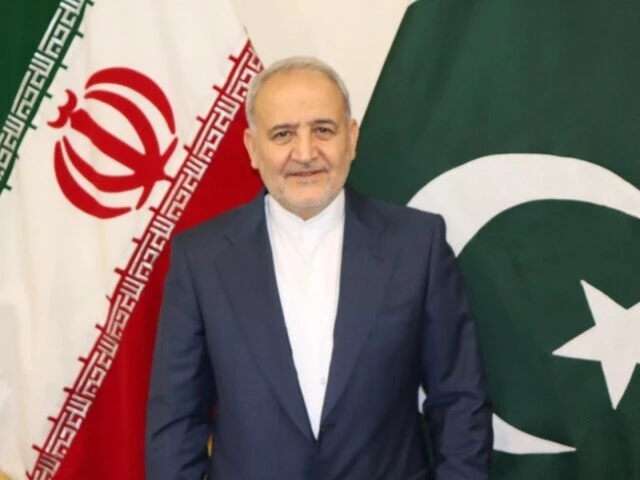ISLAMABAD:
The Foreign Office has reiterated that Iranian Ambassador to Pakistan Reza Amiri Moghadam is highly respected and entitled to all diplomatic privileges after the US’ Federal Bureau of Investigation (FBI) included him in its list of most-wanted individuals.
In a statement issued on Wednesday, a spokesperson for the Ministry of Foreign Affairs said, “The Iranian ambassador is highly respected for his positive role in fostering bilateral relations. As the ambassador of a close friend and neighbour, he is entitled to full diplomatic privileges, protection, and respect.”
The statement highlighted the longstanding and brotherly ties between Iran and Pakistan, with the spokesperson emphasising that the Iranian ambassador’s role in strengthening these ties was commendable. “The diplomatic relations between the two countries are based on mutual respect and dignity,” the spokesperson added.
Reza Amiri Moghadam, an official of Iran’s Ministry of Intelligence and Security, is wanted for questioning based on his alleged involvement in the abduction, detention, and probable death of retired FBI Special Agent Robert A. Levinson: https://t.co/3jdNl5splA pic.twitter.com/WHvvTGo7kM
— FBI Most Wanted (@FBIMostWanted) July 15, 2025
The FBI recently added Moghadam to its most-wanted list, accusing him of involvement in the abduction, detention, and likely death of Robert Levinson, a retired FBI agent who disappeared while visiting Iran’s Kish Island in 2007.
According to an FBI statement, Moghadam, a senior official in Iran’s Ministry of Intelligence and Security, is wanted for questioning in connection with Levinson’s abduction, prolonged detention, and presumed death.
Retired FBI agent Levinson disappeared on March 9, 2007, while in Iran’s Gulf island of Kish, reportedly investigating cigarette counterfeiting in the region. Levinson is considered to be the longest-held hostage in US history, if he is still alive.
Read More: US vows it ‘won’t rest’ until Iran frees ex-FBI agent
In 2013, US media reports revealed that Levinson had been paid by the CIA to gather information during his visits to Iran. He had been hoping to meet an informant during his trip who could provide details about Tehran’s disputed nuclear programme.
The White House has denied that Levinson was working for the US government at the time of his disappearance. Washington has repeatedly requested information from Iran regarding Levinson’s fate, but Iranian officials have denied any knowledge of his whereabouts.

